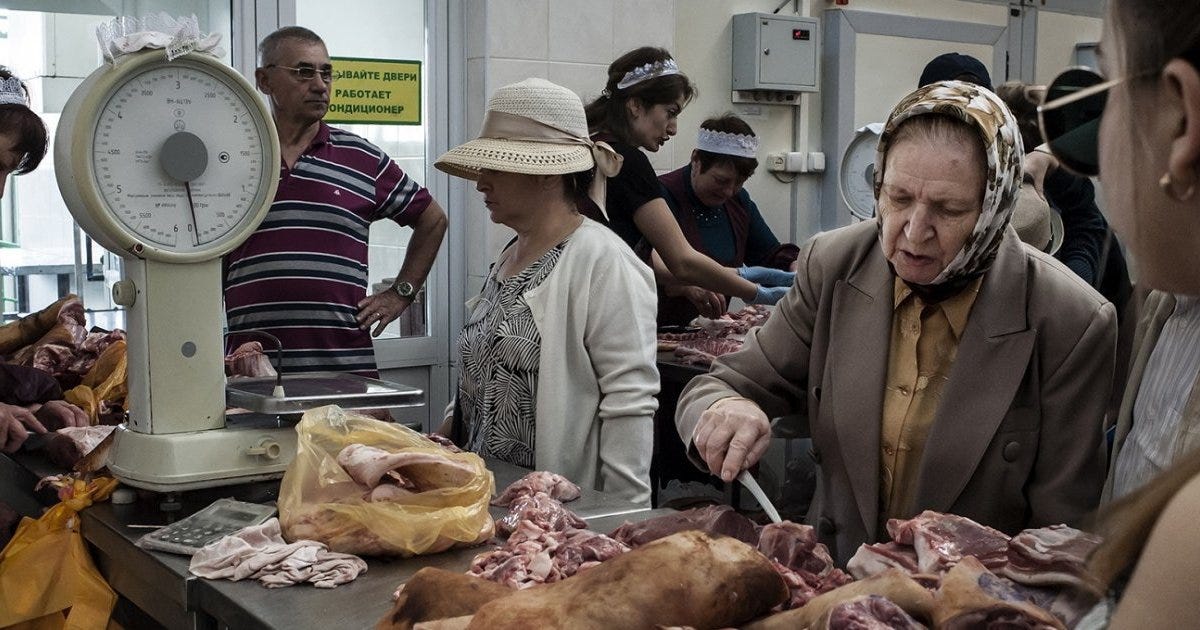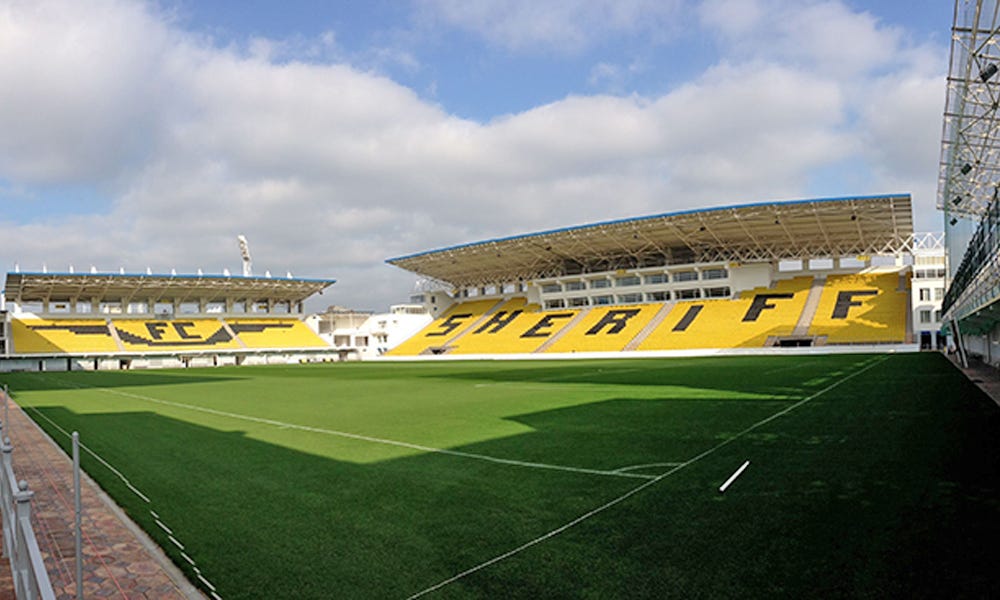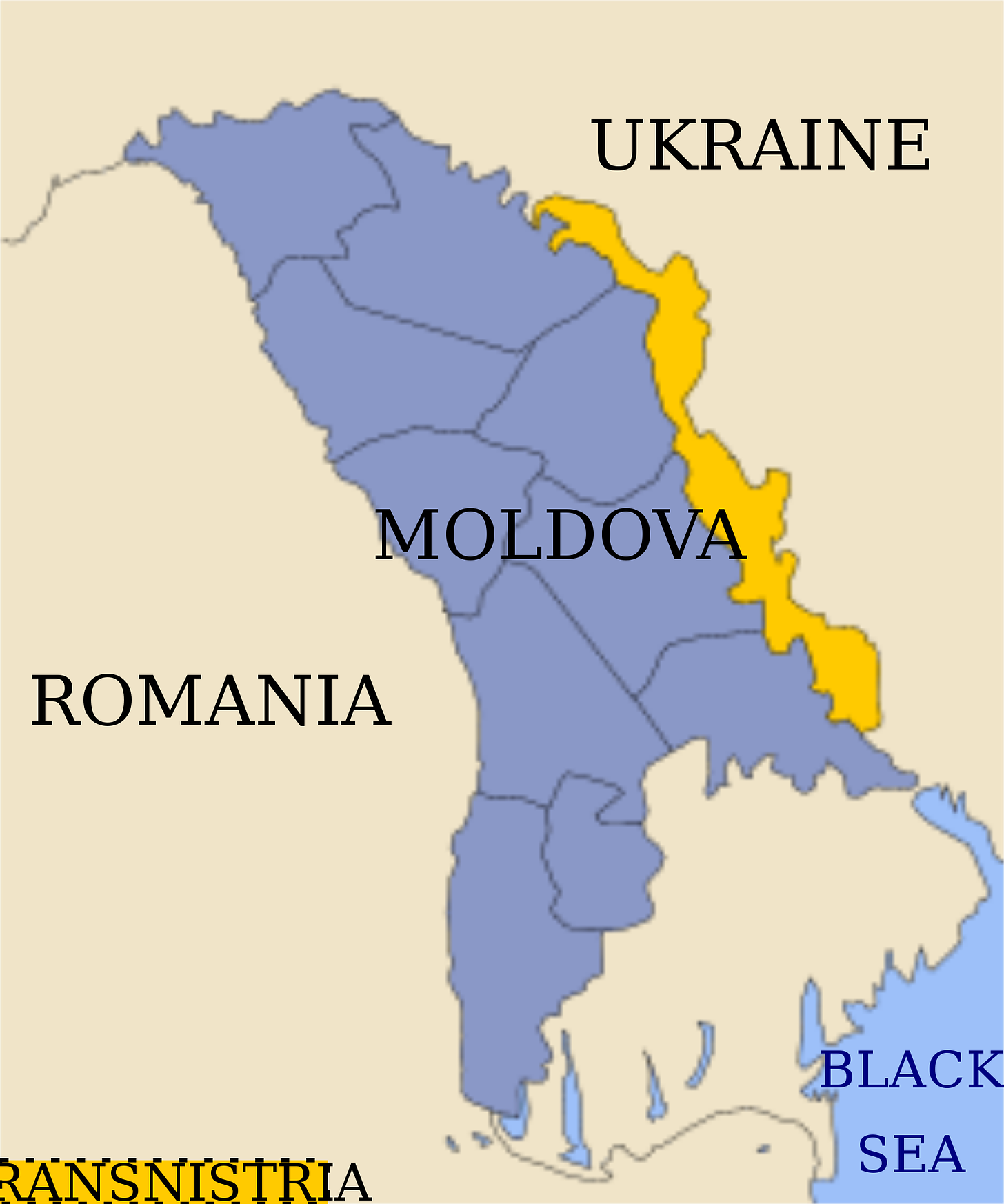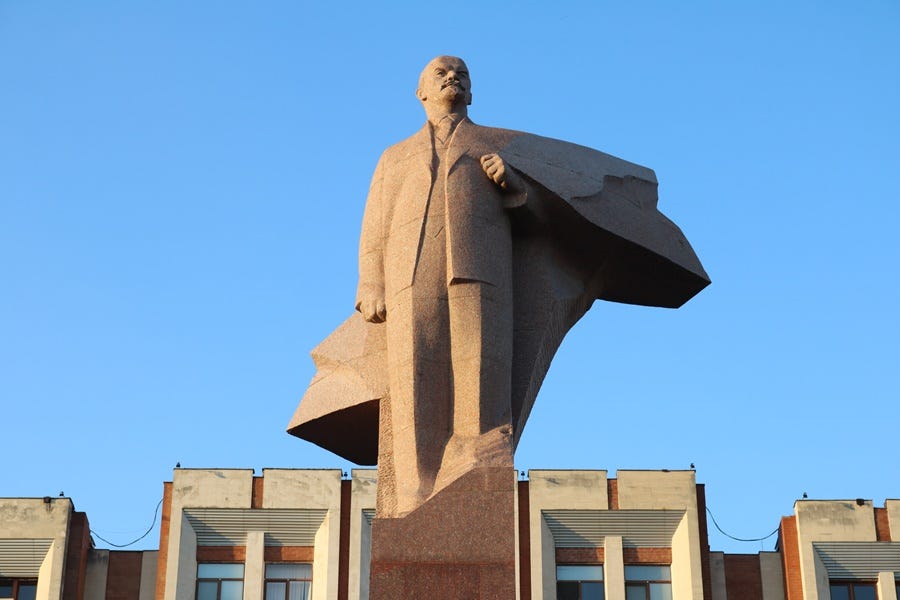TRANSDNIESTER: The Renegade Soviet Country You've Never Heard Of That Doesn't Exist
60% of the country's economy is controlled by a corrupt soccer empire

As a country, it’s not a country.
Not an internationally recognized one, at least.
Along with its sister republic of Moldova, it’s the poorest region in Eastern Europe, a weedy, markerless patch of crumbling roads and brutalist architecture mired in a Soviet Era time warp.
It has a population of half a million people, hemorrhaging more and more every year as the younger generations seek work abroad, most of it in Russia. Their university degrees aren’t recognized anywhere else, which forces many of them to retrain as plumbers or electricians so they can get even part-time jobs in other countries.
Now, the country is mostly populated by old people and children—children that are sometimes relegated to orphanages when their parents emigrate to find work. It considers itself an independent state, yet in reality is more of a political football, one it would be unwise for any country to put its toe on.
Transdniester or Transnistria, meaning “beyond the Dniester River,” is a breakaway region wedged between Moldova and Ukraine. In shape, it’s thin and uneven, like a layer of icing spread over a lumpy birthday cake. In addition to suffering excoriating poverty, Transdniestrians are under the thumb of two powerful entities: a soccer franchise called Sheriff Tiraspol, and Vladimir Putin.
Sheriff Tiraspol’s Europe-wide Champions League—a winning streak described by many as “improbable”—is part of a larger business conglomerate run by Viktor Gusan and Ilya Kazmaly. They own Sheriff supermarkets, Sheriff gas stations, construction companies, hotels, an entire mobile phone network, a chain of bakeries, a distillery, and a veritable empire of radio and TV stations. By a remarkable-and-not-at-all-suspicious stroke of luck, every member of the Transdniester Parliament is connected to the political party, Obnovlenie, founded by Gusan. Sheriff Tiraspol is, in fact, the de facto ruler of the country.
Transdniester still flies a hammer-and-sickle flag. It issues its own passports. An enormous Lenin statue scowls in front of the Parliament building in the main city of Tiraspol. It has its own currency, the Transdniestrian ruble, and even though the region is composed of three ethnicities, Ukrainians, Russians, and Moldovans, Russian is the official language, although Romanian (called Moldovan, for reasons of stubborn and inexplicable national pride) is commonly spoken.
Moscow supplies all its energy for free, which may or may not have anything to do with the serious human rights abuses that go on there. Arbitrary arrest, torture, restrictions on freedom of movement, and forced disappearances are but a few of the many problems Transdniestrians face.
The average monthly salary, equivalent to about $80 USD, doesn’t go far in the winter when heating bills are sometimes twice what a Transdniestrian earns. Although Russia supplies energy for free, Putin’s oligarchs own the plants that process it; ergo, the steep fuel costs.
On September 3, 1990, Transdniester declared its independence from Moldova, but the resulting civil war created an international political limbo that the country’s inhabitants live with everyday.
The Soviet Union fell a little over a year later on December 26, 1991, which had an enormous impact on Transdniester. Until then, it had been the most prosperous region of the Moldovan Soviet Socialist Republic. On the eve of the fall of the USSR, the standard of living in Transdniester was twice as high as the rest of Moldova. Afterward, it fell off a cliff.
The real trouble began when the USSR organized a fire sale of its assets. All of the region’s industries were snapped up by Russian oligarchs and privatized, which paved the way for poverty and gross income inequality. Now, Sheriff Tiraspol, with its 200 million dollar stadium, runs its soccer franchise under the Moldovan flag, which gives it the EU access it needs in order to compete.
But if it was hoping to engender team spirit at home, there is little to be had. In a stadium that seats 12,746, only about 1,000 seats are consistently filled, a remarkable thing in soccer-crazed Eastern and Western Europe. If, as Karl Marx once said, religion is the opiate of the masses, soccer has long since replaced it as the drug of choice. Perhaps the patent corruption of the franchise has turned Transdniestrians off forever.

So, why the fascination with this odd little non-country?
Lost causes are my Kryptonite. I can’t help but to feel for a region that is so firmly and futilely entrenched in its Soviet past. Transdniestrians have practically no identity, other than what they can gin up from the glory days of Soviet rule. Their currency isn’t recognized abroad, so when a Transdniestrian goes over the border to Ukraine or Moldova, say, their money is worth nothing. It keeps them exactly where they are, which is nowhere, frozen in time, living in destitution and despair.

I often think what I might do under such circumstances. Would I stay or go, fight or accept the conditions of my life? I suspect I would do exactly what most Transdniestrians do: leave.
What we’re witnessing is the death of a place that doesn’t even exist, Soviet holdouts going down with the ship. They’ve traded happiness for vodka and cigarettes—no judgment from me on this, by the way. Time was, I might have done the same for a lot less. It’s a lot of learned helplessness to overcome. I sincerely hope they do.
Before you go, I strongly urge you to watch this utterly mesmerizing twenty-two minute documentary on Transdniester. If you’re looking for something shorter, try the second link.
Better sweep the floor first though, because your jaw is going to be on it.
What are your thoughts on Transdniester? Any predictions about its ultimate fate? I’d LOVE to hear what you’ve got to say, so please leave your comments below.






OMG...we've never met and yet you and I are simpatico in SO many ways. This reminds me so much of Kosovo when I was living there in the mid-'90s- a place locked in time, that most of the world couldn't find if you spotted them a Geography Ph.D, and that NO ONE cares about. The shape of the country reminds me of Chile, and your description is moderately reminiscent of Chile under Salvador Allende.
And, yes, I would LOVE to go there. I've always had a thing for lost and forgotten repressive regimes. I have no idea why, other than it's something so far removed from what I've known. I remember taking a long weekend on Lake Ohrid in Macedonia. The Albanian border runs north/south literally through the middle of the lake. Albania's communist regime fell a few months before I was there (Enver Hoxha was a g**d**n freak show). Until then, if you'd decided to swim from the Macedonian side out to the middle of the lake, you would've been met by an Albanian patrol boat, machine-gunned, and left for dead. The Albanian "Navy" didn't f**k around.
As a huge soccer fan, I hear the name "Sheriff Tiraspol" a lot. Your essay explains a lot of the "whys." Thanks for that. :-)
Jesus. I could make an inappropriate joke about academia. But seriously, from what you've said, those videos are too depressing for me to even look at.